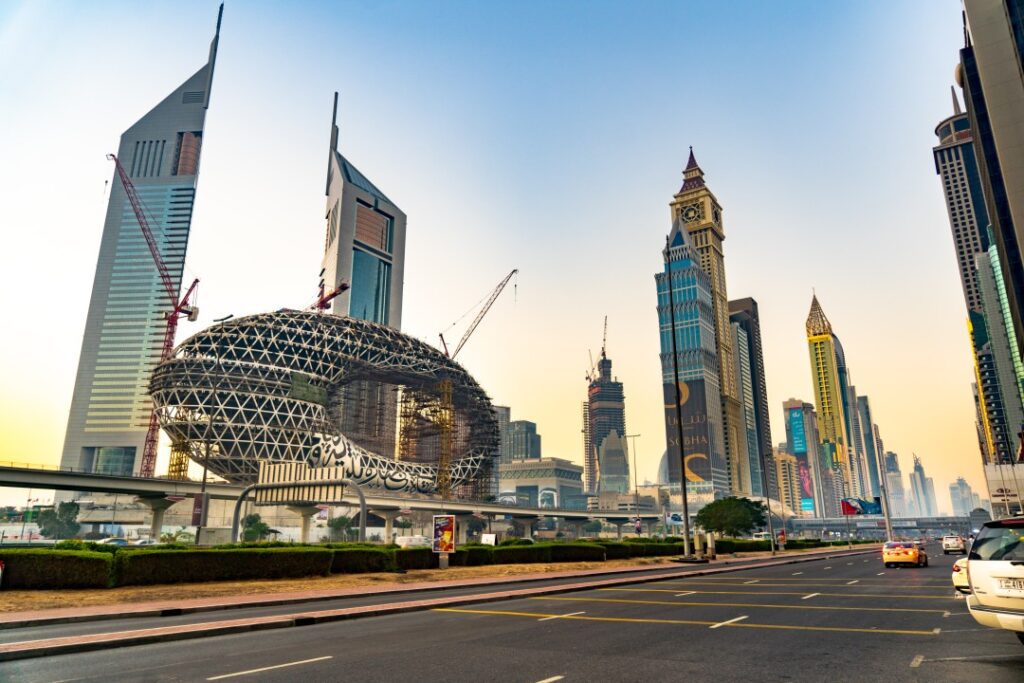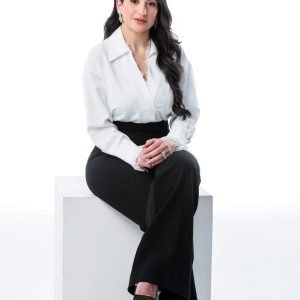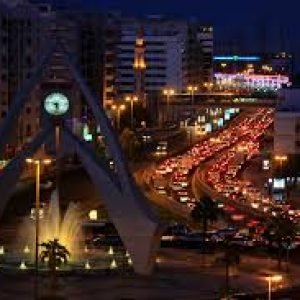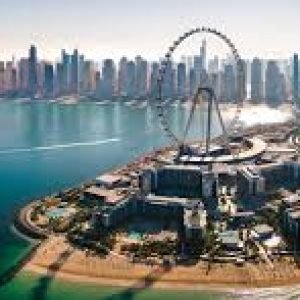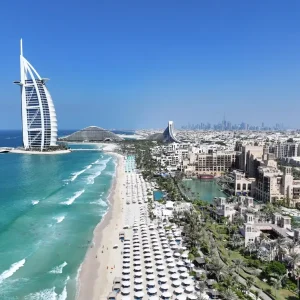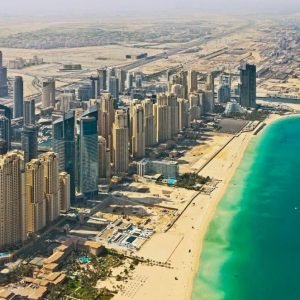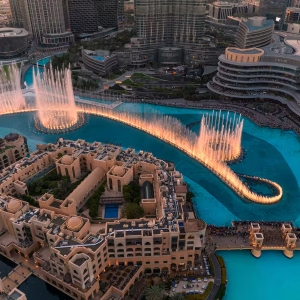Dubai’s Journey to Wealth: A Fascinating Tale of Vision and Innovation
Dubai, once a modest fishing and trading hub, has transformed into one of the wealthiest cities in the world. This rapid growth is often a topic of intrigue, with many curious to understand how a desert city built such affluence in a relatively short time. By examining Dubai’s history and its dynamic approach to economic diversification, one can see how strategic vision turned an arid landscape into a bustling center for business, tourism, and luxury.
, once a modest fishing and trading hub, has transformed into one of the wealthiest cities in the world. This rapid growth is often a topic of intrigue, with many curious to understand how a desert city built such affluence in a relatively short time. By examining Dubai’s history and its dynamic approach to economic diversification, one can see how strategic vision turned an arid landscape into a bustling center for business, tourism, and luxury.

, once a modest fishing and trading hub, has transformed into one of the wealthiest cities in the world. This rapid growth is often a topic of intrigue, with many curious to understand how a desert city built such affluence in a relatively short time. By examining Dubai’s history and its dynamic approach to economic diversification, one can see how strategic vision turned an arid landscape into a bustling center for business, tourism, and luxury.
Early Beginnings: The Role of Oil in Dubai’s Wealth
The journey to prosperity began in the late 1960s, when oil was first discovered in Dubai. Oil production, which began in 1969, provided the first substantial revenues, enabling Sheikh Rashid bin Saeed Al Maktoum to launch ambitious development projects. The funds from oil allowed Dubai to modernize infrastructure and improve essential services. However, unlike some neighboring states that became heavily dependent on oil, Dubai’s leaders took a different path, foreseeing the need for a diversified economy.

Beyond Oil: A Strategy for Sustainable Wealth
Dubai’s leadership, especially Sheikh Rashid and later his successor, Sheikh Mohammed bin Rashid Al Maktoum, realized that relying solely on oil would not be sustainable. With this forward-thinking approach, they began investing oil revenues into other sectors, including tourism, real estate, finance, and trade. This strategic shift allowed Dubai to mitigate the risk of fluctuating oil prices and set the stage for a robust economy independent of natural resources.
The government’s diversification strategy led to the creation of “free zones,” such as Jebel Ali Free Zone, Dubai Media City, and Dubai Internet City. These areas attracted international businesses by offering tax breaks, foreign ownership rights, and a pro-business regulatory environment. By fostering an appealing climate for multinational corporations, Dubai quickly became a global business hub.
Tourism and Real Estate: Icons of Dubai’s Economic Growth
One of Dubai’s most significant moves was investing in tourism, with a focus on luxury and innovative projects. The city built some of the world’s most iconic structures, like the Burj Khalifa, the Palm Jumeirah, and the Burj Al Arab. These developments attracted tourists worldwide, eager to experience Dubai’s luxury hotels, shopping malls, and unique attractions. By branding itself as a luxury travel destination, Dubai succeeded in drawing millions of tourists annually, boosting its economy.
Real estate has also played a substantial role in Dubai’s wealth. The city implemented policies allowing foreign nationals to own property, sparking a real estate boom that attracted investors from around the globe. As a result, Dubai became a desirable location for high-net-worth individuals and global investors, further strengthening its economy.
Financial and Trade Sectors: Building a Global Hub
Today, Dubai is a major player in international finance and trade. The Dubai International Financial Centre (DIFC) was established to position Dubai as a financial hub, attracting some of the world’s top banks and investment firms. Additionally, Dubai’s strategic location between Europe, Asia, and Africa made it a valuable transit and trade center. The city’s ports and airports, especially Dubai International Airport and the Jebel Ali Port, are among the busiest globally, facilitating trade and boosting Dubai’s position as a logistics and transportation powerhouse.
Fostering Innovation and Technology
In recent years, Dubai has also emphasized innovation and technology as part of its long-term growth plan. With initiatives like Smart Dubai, the government aims to transform the city into one of the smartest cities in the world. Investment in tech startups, artificial intelligence, and green energy further diversifies the economy and prepares Dubai for a sustainable future.
Dubai’s adoption of blockchain technology and artificial intelligence aligns with its goal to be a leading digital economy. This commitment to innovation attracts a new generation of tech companies and entrepreneurs, keeping Dubai competitive on the global stage.
Conclusion: A Model of Visionary Leadership and Adaptation
Dubai’s wealth story is one of bold leadership, strategic investments, and a willingness to embrace change. While oil revenue provided the initial push, it was the government’s commitment to economic diversification that truly made Dubai rich. By continuously adapting to global trends and investing in high-potential sectors, Dubai has created a legacy of growth that seems set to continue well into the future.
As one of the world’s wealthiest and most dynamic cities, Dubai serves as a case study in how forward-thinking policies and strategic economic planning can turn challenges into opportunities, making it a symbol of prosperity and resilience in the 21st century.
Click here to check UAE STORIES website .
Do follow UAE STORIES instagram .

